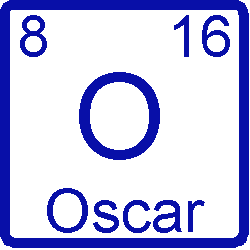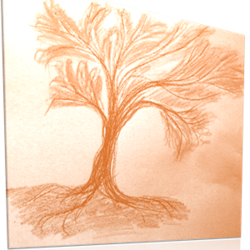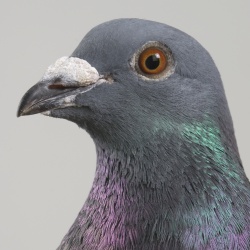Blog: Research
-
Cognitive biases
in: Education, Popular Science, Researchon July 2, 2018You certainly know drawings like those shown below. They are optical illusions, and are designed to deceive our visual perception. Multiple forms of illusions exist. Exact categorization on an objective level is difficult, however, because the illusions result from a combination of physical properties of the stimuli, physiologic characteristics of visual perception, and, most importantly, traits of the cognitive system as a whole.
more -
A trip to the Microtomography Beamline ID19 of the European Synchrotron Radiation Facility
in: Researchon July 11, 2017When I tell people that I went to a synchrotron to perform X-ray phase contrast micro-computed tomography, among the questions I get are “What’s a synchrotron?” and “Why can’t you use a normal micro-CT machine?”
more -
Crack a presentation 101
After some time in academia you realize that getting people to understand your research is as important as the scientific methodology you have used. And this is even more true when you are trying to secure funding for your future research. There are many ways in which you can convey your message, through journal publications, reports and presentations.
more -
A name for my project.
in: Researchon January 13, 2017The first research project I ever worked on was named VA-270. As opposed to VA-279. I still remember it. I think nobody else does. Lucky enough it was never confused with VA-271 or VA-269, because those did not exist.
more -
Selling stories 2
In my last blog post, I wrote about the issue of fitting a selection of scientific observations into seemingly plausible stories concluding that it is better to focus on data/content rather than the story. Now I want to pick up that story selling theme, but explore it from a different perspective. I start with challenging my own viewpoint by claiming: We need more stories in science! Yes, this reads like a blatant contradiction, but it is not, as I will make clear in a moment.
more -
How can I use my BibTeX library in MS Word?
3 commentsThe goal of any research is to extend the knowledge about something. However, it would be stupid and infeasible to start from scratch in every research project. So, what we usually do to create something new is to combine our own thoughts with what was previously discovered and published by others. Therefore, an important element of any scientific text are citations of previous publications.
more -
About wise people and their footsteps
In my last blog, I have been writing about my first steps as an engineer in a biolab. Well, quite some time has passed since then and things have changed. In the meantime, I feel rather comfortable handling «my» cells and was able to establish a number of collaborations that keep information and inspiration (and blood) running.
more -
Capillary effects: from garden to lab applications
As part of a project-based course, we are initiating students to micro-fluidic devices for medical diagnostics. The underlying principle is to automatize a diagnostic procedure typically done in a specialized laboratory and bring it to the point-of-care. Beyond automation, miniaturization offers a number of advantages including low fluid volumes (implying smaller patient sample, less waste and lower reagent costs), faster analysis and potential for highly compact systems, all of which make these so called “lab-on-a-chip” approaches ideal candidates for the development of point-of-care diagnostic devices.
more -
The struggle with p-values
in: Researchon April 12, 2016For most of my professional life I have thought that “statistically significant” results are marked by a p-value of less than 0.05, and that, if the test is used correctly, everything is cool and dandy and can be published. Well…. “if the test is used correctly” is the important consideration here, and it has always been.
more -
Pigeons know better
1 commentWhen your experiments went wrong again, when you just spent another weekend trying to guess what the experimental protocol should be, and, especially if you feel like you’re losing control, talk to a pigeon!
more -
Preparing MATLAB figures for publication
8 commentsFor us researchers, writing documentation and preparing manuscripts for publication is a large part of our work. And often, the most important parts of our written documents are the figures that visualize the data we generated. As my tool of choice for most calculations is Matlab, most of my data ends up in the Matlab workspace at some point and gets plotted from there. In order to prepare Matlab figures for publication, some modifications should be made to the figures. In the following, I will explain the main steps I usually take.
more -
Selling stories
1 commentin: Researchon March 18, 2016Not that I am particularly experienced with academic life as a first year PhD student, and not that I got a bad impression of science after just a few months as a rookie researcher at the University of Zurich and the Zurich University of Applied Sciences. No, quite the contrary. But according to senior colleagues, friends, the insistent warnings of contributors in scientific journals and their echo in mass media, there are things going wrong with science.
more -
How do I find my peers?
in: Researchon March 11, 2016As a researcher I am interested in what other scientists in my field are investigating. But who are these other scientists? Where do they work? The core research topic of the Interface Group is the study of flow and transport phenomena in biological systems, which belongs largely to the fields of biofluidics and biofluid mechanics. On the applied front, this includes the interaction of medical devices with their biological environment. Good examples of this topic are drug release from a stent placed inside an artery or the function of an artificial heart valve.
more












